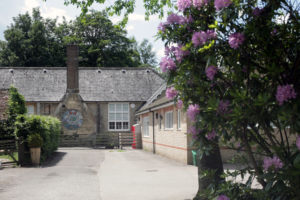Our Curriculum
Curriculum development and pedagogy are continually evolving. It is now recognised that a full and rich curriculum, designed to ensure that new learning builds on what has previously been taught, is central to strong curriculum models that promote excellent outcomes for children. At St Katharine’s we are proud to be a reflective organisation that strives to build our practice around strong evidence-based research. We are keen to identify best-practice in the education sector and from the many partners that we work with and adapt that practice to fit our school and the learners that we have here.
In September 2019 we began full review of our existing curriculum. This is a complex task and has been a significant focus for the last 2 academic years. Our ongoing work to develop our curriculum and the progress towards it are recorded in our Academy Improvement Plan.
- All subjects mapped for progression of skills and knowledge from Y1 – 6
- History, Geography, Art, Design and Technology and Science are taught in blocked units. This ensures that all subjects receive an equal weighting across the academic year. Teaching subjects separately also means that children come to understand the specific skills (disciplines) of each area of the curriculum. For e.g children know that there is a difference between how Historians ‘enquire’ compared to Scientists or how artists draw compared to designers.
- Music, Computing, RE, PE, PSHE and MFL remain as discreet subjects, time-tabled weekly.
- 10 Golden Threads agreed and mapped; Equality, creativity and ingenuity, democracy, government and rule, change, stewardship, climate change, staying healthy, diversity and humanity. We will continue to identify threads that run through our curriculum as part of a process of continuing review.
- We are currently working to identify subject specific threads within our blocked subjects for e.g. ‘Invasion’ in History or ‘Place’ in Geography.
Block Curriculum
Science
Subject Profile

Overview

Knowledge skills & concept map

History
Subject Profile

Overview

Knowledge skills & concept map

Geography
Subject Profile

Overview

Knowledge skills & concept map

Design & Technology
Subject Profile

Overview

Knowledge skills & concept map

Art
Subject Profile

Overview

Knowledge skills & concept map

Other Subjects
MFL
Subject Profile

Overview

Music
Subject Profile

Overview

Forest School
Subject Profile

Overview


Curriculum development is a key objective in the 2021 – 2022 Academy Improvement Plan.
This work is ongoing and evolving and we recognise that as we learn and grow our understanding of good curriculum design, our aims and desired outcomes will change with us.
We have already had some early parental feedback:
‘we are noticing the difference at home, the children are coming home talking about Science or DT – they have a real sense that they are learning in a particular subject.’
Parents receive a ‘topic web’ every seasonal term that details the key areas that their child will be learning about. As children begin a new block of curriculum learning, teachers write a knowledge organiser to accompany that block. These are shared with parents (via See Saw) to support discussion and further learning at home. We actively encourage parental involvement in their child’s learning, parents are always welcome to come in and help either on a regular basis or to share a particular expertise in an area as a one off.
If you would like to find out more about our curriculum, how it is designed and mapped from EYFS to Year 6, come and ask; we will be happy to talk you through our plans.
Maths
Our Maths planning comes directly from the National Curriculum supported by the ‘Can Do Maths’ scheme which focusses on a mastery model; teachers use this to plan ‘small steps’ units of work that build on the skills gained by the children in previous blocks of learning. Our approach to maths is detailed in the maths policy. Please ask for a copy if you would like to find out more.

At St. Katharine’s school we have a strong focus on the development of mental maths skills right from the beginning, when children enter school. It is our belief that if children can quickly gain the skills needs to compute mentally then this will support learning in all other areas of the maths curriculum.
We use a home /school scheme call ‘Passport Maths’ that fully involves children in their learning. Children have clear targets to reach before gaining their certificate for a continent. We aim for all our children to be ‘Globe Trotters’ when they leave our school with a firm grasp of all times tables and the factors of all numbers to 100, computing with decimals as well as understanding factors, square and prime numbers.
English
English learning spans a wide range of classroom learning. Each aspect of that is captured under the broad headings of Speaking and Listening, Reading and Writing.
Planning for all aspects of English comes directly from the National Curriculum.
Reading is taught in all classes everyday as a discrete area of study. In EYFS and Key Stage 1, children have daily phonics lessons that support the reading and spelling of the English Language. In addition to this children are supported with the development of early reading skills through guided reading lessons. In Key Stage 2 children have whole class guided reading sessions daily. Children will share a text together and are supported to:
- deepen their understanding of vocabulary
- retrieve information
- make predictions
- infer meaning and the intentions/thoughts of key characters
In support of strong reading outcomes, teachers ensure that there is an element of reading at the beginning of other lessons for example a short extract from a non-fiction text or diary entry at the start of a History lesson.
Writing, including grammar teaching, is the main focus of daily English Lessons. Children will explore a range of genres across the year and their time at school, this includes non-fiction, narrative and poetry. We are keen for writing experiences to be meaningful for the children. We include a purpose and an audience for our writing at the beginning of the planning process. We are working hard to build units of work that have the following at their core:
- rich, powerful, quality texts or other stimulus for writing such as film and drama
- links where relevant to other aspects of the curriculum i.e.: a block of work in science might see children writing a narrative circular story about a creature who doesn’t hibernate trying to understand where every one has disappeared to! (Year 1 and 2)
- meaningful links to grammar teaching (wherever possible) so that this is embedded in the writing process and not just a discrete add on
- backwards or bottom up planning; teachers know the outcome of a unit of work and plan a careful sequence of lessons to get the children there:
Typically schools have found that children initially double their rate of progress when a systematic teaching sequence is developed from a quality text
Pie Corbett: 2013
Spelling is taught through phonics learning in KS1 and both discreetly and as part of English lessons in KS2. We are currently looking to review our practice in the teaching of spelling. There is cross – school work going on within our academy trust to identify best practice and strong and effective models for spelling teaching. The area of development is written into our Academy Improvement Plan 2021-22.
Speaking and Listening is learning that is woven into the fabric of every lesson and is enhanced by many of our extra curricular activities such as performances, acts of worship and church services. Teachers explicitly plan for opportunities to develop spoken language across a range of subjects this might include;
- a presentation as part of a block of learning outcome i.e. Year 5 and 6 present to a Dragon’s Den style panel when taking part in a Smoothie Making unit of work for design and technology or children (throughout their time at school) learn stories to be retold by heart to innovate with and perform.
- A debate as part of an English Lesson
- Explaining a new piece of learning to another child or adult – this might include the use of technology
- Creating a news report recorded or filmed as part of a non-fiction writing unit (this might include the making of short films using a green screen)
the list is endless…

Please do come and find out more…
Curriculum design and planning is a complex, interwoven task that is continually evolving. It is difficult to do justice to the thought and hard work that is going into our plans. We operate an open door policy and are happy to discuss any aspect of your child’s learning with you in addition to the information that is supplied on this website. Please do ask.
Also please look in the resources section on the parent tab to find:
1) our reading booklet (to support parents understand how we approach reading)
2) information about our approach to calculation
and more…

